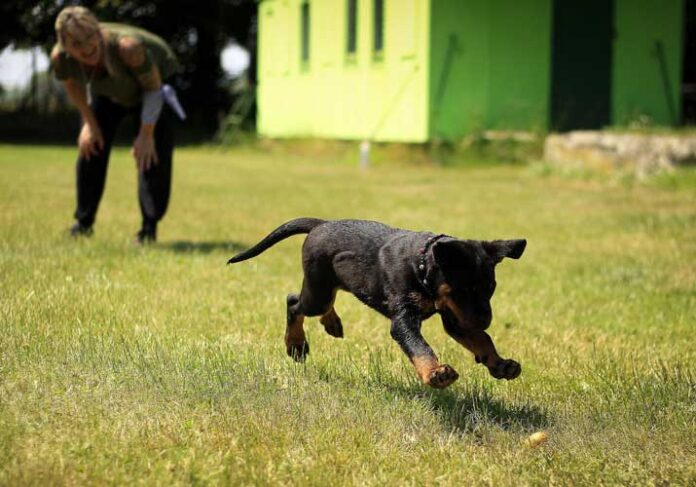
As with children, there are many different theories on teaching dogs and on how to train a dog. Once we learn how to know our dog, it will be our job to evaluate the best way to proceed in its training. It won’t always be any easy task and we’ll need help from some pet-oriented professionals. We will discover when we should contact a dog behaviourist or a dog trainer!
How to train a dog
The first thing we must understand is whether your dog needs a basic dog training course or whether your dog needs a professional. For example, a puppy taken away from its mother too soon can have serious problems relating to others, and can suffer from various fears and phobias and it will be really difficult to resolve alone and we will need the help of a good dog behaviourist. In other cases however we can have a dog with a more aggressive character compared to other, independently of its breed in which case a dog trainer’s help will be essential.
When you follow our online training course, you have to understand that there are general rules and reading them we will acquire important information to better our relationships with our furry friends, but apply them the right way is another matter. These techniques will often need to be adapted based on the type of dog, breed, its personality, its gender, its lifestyle, and most of all its background.
Let’s look at a practical example! On our pet blog, you obviously know petting dogs transmits a sense of peace and calm to our furry friends. So some might think petting their dog when it begins to bark at other dogs it ok but there is nothing farther from the truth … It’s true that petting relaxes them, but if done in such circumstances seems like a rewards so our pet will then bark at every other dog that crosses their path!

Dog trainers
Have you ever seen how law enforcement dogs act? Despite their furry friends becoming super-excited, as is normal for every four legged friend, their instructors manage to calm them down and make them sit. Reaching this level is not easy; it takes a really infinite patience and many hours of training. Our domestic dogs don’t have to such perform duties, so it is also unnecessary to stress them up to that point, but if, for example, thanks to a dog trainer, you get them to sit despite being in a state of excitement, it means that you have already achieved a great level and that your trainer has done a great job!
Let’s be clear though, training a dog does not mean to intimidate your dog to the point that it’s afraid of you. It means establishing a great working relationship, and usually only thanks to a dog trainer will you be able to reach these kinds of results. If you succeed on your own, hats off! In fact we sincerely recommend looking for a course on how to become an instructor, as you will already be at a great point!
Dog behaviourist
In 1995, in Texas behavioral medicine was born. It is an important discipline for the behavioral health of our four-legged friends. The behavioralist vet is primarily concerned with preventing the development of certain behavioral disorders, diagnosing them and treating them with the appropriate psychiatric treatment: a real psychologist for dogs.
In many cases, as many dog trainers will confirm, it is much easier to manage a dog’s aggression than its fear. If your dog is afraid of everything, the petting them is counterproductive, as it could communicate to our pet that it is right to be so scared! Fixing their fears and phobias is a really difficult task. We will need a highly trained dog behaviourist and we must carefully study the behavior of our dog and precede experimenting, trying to minimize their fears.
If unfortunately, your furry friend is suffering from behavioral disorders, we strongly recommend that you consult a professional, because alone we risk making the situation worse!




















